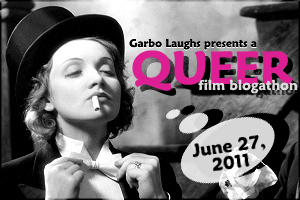It is easy in film critic land to ascribe the shape and form of most films to an overriding artistic impulse on the part of the filmmakers, but this is only true in a small number of films. Most films are at the mercy of social and commercial forces that are well outside the control of directors, producers, and even studios. Back in the day, B-films were particularly susceptible to these forces. The function of these movies was to make money, after all, not plumb the depths of the human condition. If they sometimes managed to exist as actual art, it was often entirely accidental. Whatever their artistic aspirations may be, most of the people who do the nuts and bolts work of making a film are there because it's a job. This includes actors, who may appear in films for entirely mercenary reasons. There are plenty of B-movies starring A-list actors or directed by A-list directors who for one reason or another needed a paycheck at the time. It's a cruel twist of fate that Michael Caine couldn't accept his first Oscar in person because he was busy making Jaws 4: The Revenge. Caine got a lovely house out of the deal, or so he says. The commercial and social pressures on the art of movies were especially strong in the late 1940s and early 1950s, when making a living in movies often depended on one's politics.
For example:
In the 1930s and early 1940s, Edward G. Robinson was one of the cinema's biggest stars. He was principally known for playing gangsters, co-equal with James Cagney as an attraction in such roles. He was also able to expand into more varied roles where he played against the tough guy image. There is a wide gulf of difference between Caesar Rico Bandello in Little Caesar and the morally righteous insurance investigator, Keyes, in Double Indemnity or the henpecked and pussy-whipped artist, Chris Cross, in Scarlet Street. He had a broad range, which was often ignored by the studios who cast him. His range was certainly ignored by Warner Brothers where he made his breakthrough films. They cast him in a long succession of gangsters and tough guy parts. When Robinson was entertaining the troops on a USO tour during World War II, he found he got no response from the GIs unless he started his bits with an in-character speech by Rico, Little Caesar himself, before speaking as himself as a strident anti-fascist. The real Robinson was an intellectual, a famed art collector, a lion of the Hollywood Left, and an immigrant Jew. He put his money where his convictions were, too, donating to over 800 left wing and anti-Nazi and anti-fascist organizations in the 1930s. He was among the first big stars to make openly anti-Nazi films, starring in Confessions of a Nazi Spy well before the United States entered the war. After the war, he agitated for racial equality in the workplace and campaigned for civil rights. But no good deed goes unpunished.















